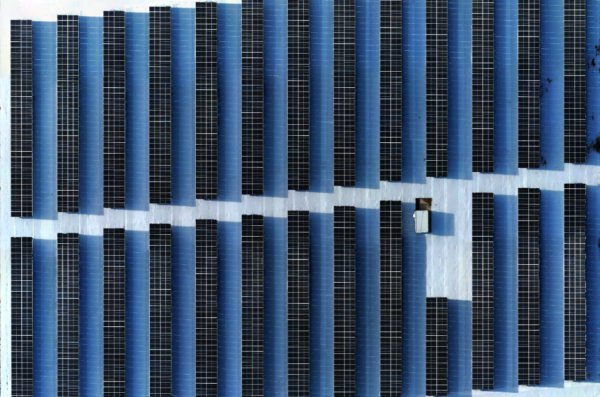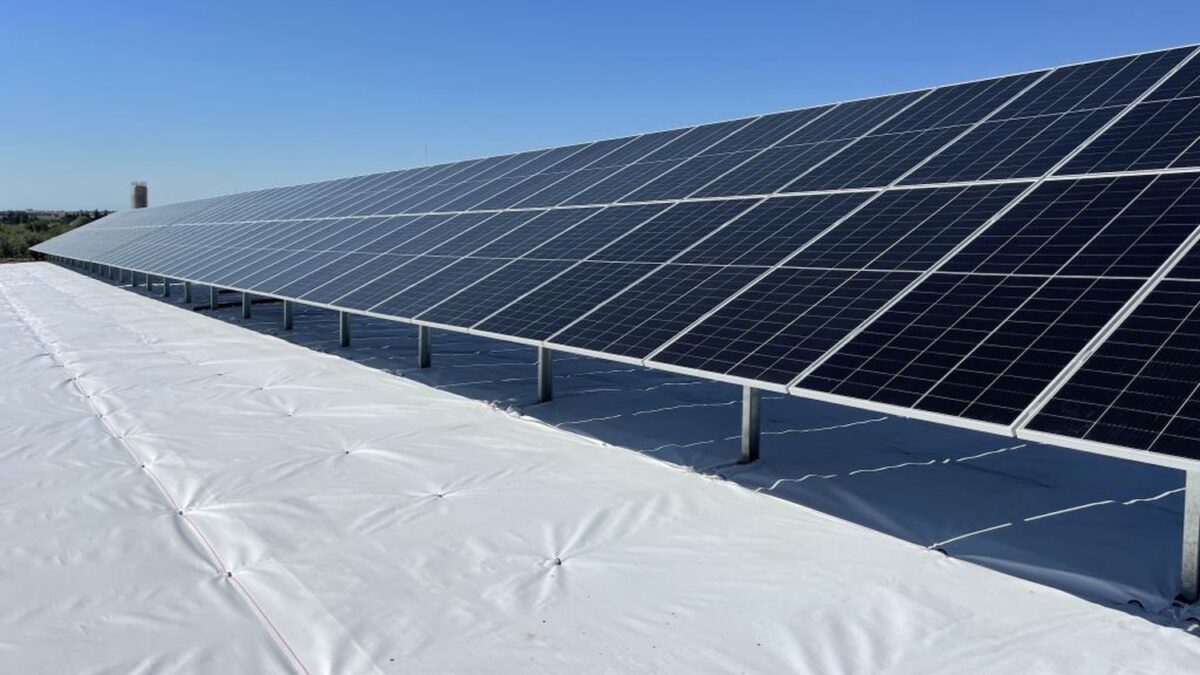Greece's Thrace Group has developed a material that reportedly increases the albedo of the surface below a PV power plant and the energy yield of bifacial PV projects by at least 5%.
The packaging solutions manufacturer claims a minimal gain for plant configurations with modules mounted on fixed driven piles, with 0.8 meters clearance between module rows and an inclination of 20 degrees. It also claims bifacial gains of up to 40%, which can vary depending on the configuration of the solar plant.
The Helios Reflect System (HRS) “combines a weed suppression layer to control weed flora and preserve the benefits of using bifacial modules with an albedo enhancement layer that maximizes the solar irradiation received by the rear side of the PV modules,” George Papagiannis, sales and marketing manager in the plastics division of Thrace Group, told pv magazine.
The top layer is made of polypropylene resins, giving it flame-retardant properties, while the permeable membrane preserves soil biodiversity and moisture content, allowing for complete land restoration once removed. The material is durable, reusable, and recyclable at the end of its service life, with the top layer lasting over five years and the bottom layer lasting about 10, according to Papagiannis.
Thrace Group installed the solution in two 1 MW bifacial PV plants in Xanthi, Northern Greece, and compared the measurements with a control 1 MW installation in the same area over a year.
The HRS installations showed a 69% increase in albedo reflectance and a bifacial gain increase from 12% to 17%. The electricity production attributed to the rear side of the bifacial modules increased by at least 42%, resulting in a total energy yield rise of at least 4.5%, according to Thrace Group.
“It is up to the stakeholders of a PV project to determine which plant’s features need to be optimized so that AC capacity does not limit the project’s potential in maximizing the benefits of the albedo enhancement,” said Papagiannis.
Thrace Group estimates that approximately 2,000 square meters of HRS can be installed per working day with a team of at least three workers. The installation cost for the product is €0.014 ($0.015)/W, including materials, labor, and accessories. The company will showcase the HRS solution at Intersolar Europe in Munich, Germany.

Image: Thrace Group
This content is protected by copyright and may not be reused. If you want to cooperate with us and would like to reuse some of our content, please contact: editors@pv-magazine.com.



2 comments
By submitting this form you agree to pv magazine using your data for the purposes of publishing your comment.
Your personal data will only be disclosed or otherwise transmitted to third parties for the purposes of spam filtering or if this is necessary for technical maintenance of the website. Any other transfer to third parties will not take place unless this is justified on the basis of applicable data protection regulations or if pv magazine is legally obliged to do so.
You may revoke this consent at any time with effect for the future, in which case your personal data will be deleted immediately. Otherwise, your data will be deleted if pv magazine has processed your request or the purpose of data storage is fulfilled.
Further information on data privacy can be found in our Data Protection Policy.